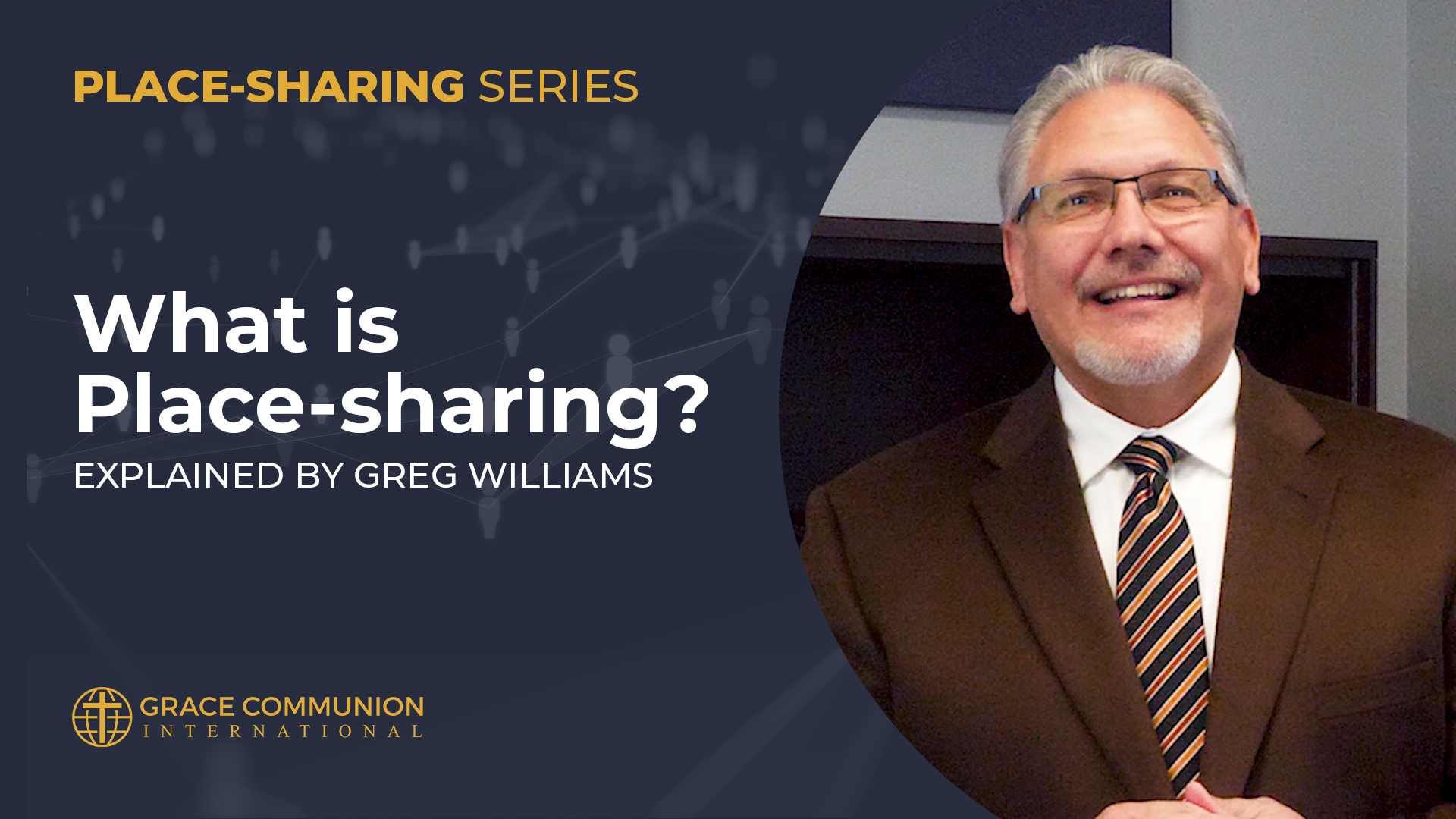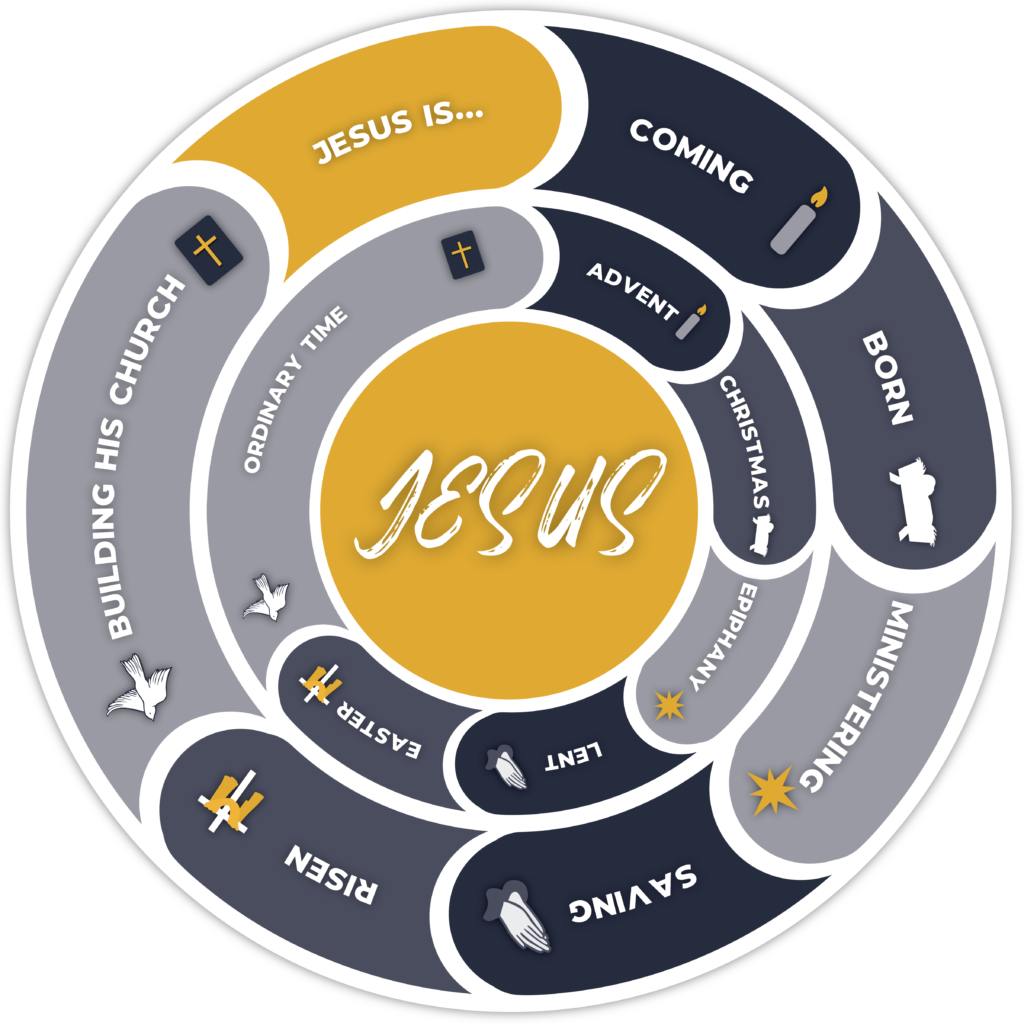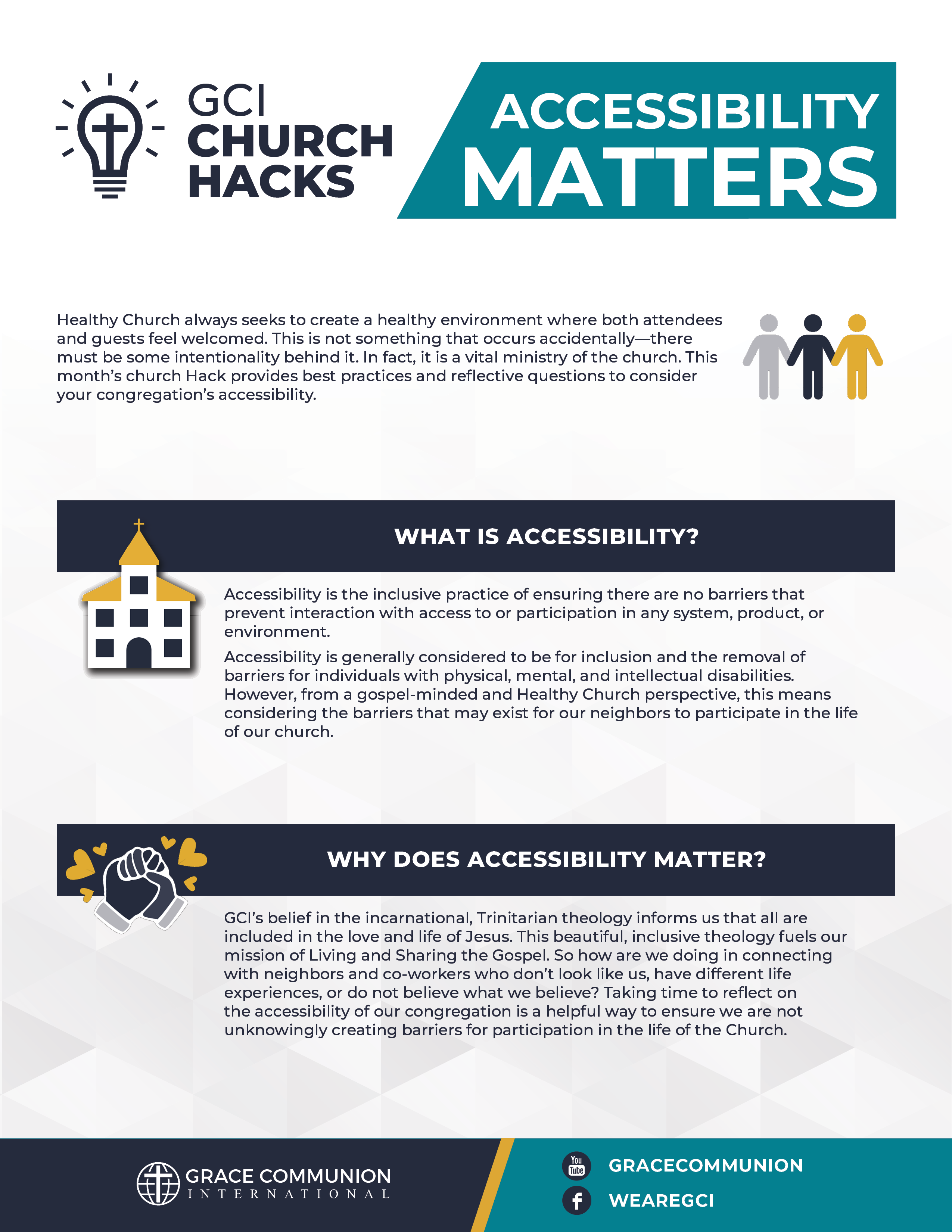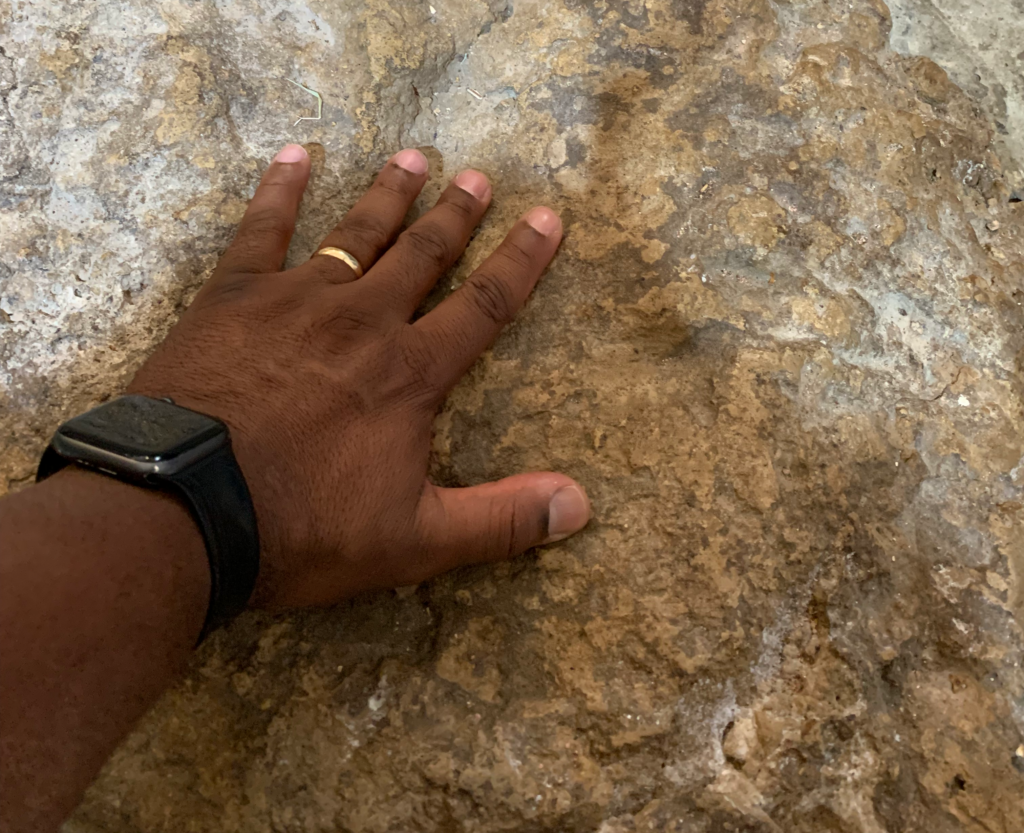Event Planning w/ Ceeja Malmkar
Welcome to the GC Podcast, a podcast to help you develop into the healthiest ministry leader you can be by sharing practical ministry experience. Here are your hosts, Cara Garrity and Jamie Garcia.
Cara: Welcome everyone to today’s episode of GC Podcast. I have Jamie Garcia here again with me today as co-host. Now it’s the middle of the summer here.
And so, I’m wondering, Jamie, what is some of your favorite summer activities?
Jamie: Cara, I miss you! Camp. Yeah, so much. It’s actually my favorite summer activity. Sadly, we are not able to have it here in the Philippines because of pandemic restrictions, but it’ll always be my favorite.
Cara: I love that. And it’s a little bit of a cheat because at a youth camp, you have a lot of different activities put together. That’s a little bit of a cheat answer, but I’ll allow it. I’ll allow it and speaking of youth camps and neighborhood camps with youth today, we’re actually going to be talking about Love Avenue events.
And so, what’s a Love Avenue event that you’ve been part of that has been really meaningful to you, Jamie?
Jamie: One regular effort we have is called donut conversation. So basically, that’s like a donut as in donut. So, we do that with student leaders in a target school community that we have. It’s a monthly thing where about 80 to 100 students gather online for a conversation, and we maximize that time with them to share life experiences.
And also have devotionals with them. With that we are able to help them, not just with the word, but also with topics like leadership, career relationships, et cetera.
Cara: Yeah, that’s fantastic. Whenever ministry includes food, that’s always a good time, breaking bread around the table.
So why don’t we go on ahead and tune into what our guest today, Ceeja Malmkar, has to share with us about Love Avenue event.
Hello, friends and welcome to the latest episode of GC Podcast. This podcast is devoted to exploring best ministry practices in the context of Grace Communion International churches. I’m your host Cara Garrity. And today I am overjoyed to interview my friend, Ceeja Malmkar. Ceeja’s the MTC coordinator and Love Avenue champion at GC Surrey Hills in Oklahoma, USA.
Ceeja, welcome to the pod. I am so happy to have you join us today.
Ceeja: Yay. I am so excited. Cara, I love doing these with you. So much fun!
Cara: And today we’ll be talking about Love Avenue event planning, and there’s so much to talk about with that. So, let’s just jump right in and get started.
The first thing that I’d love for us to talk a little bit about is just some ideas of Love Avenue events. What are the kind of things that we’re talking about when we talk about Love Avenue events?
And so first, before we even get into a little bit of brainstorming, I put out a question to GCI and asked what kind of Love Avenue events are happening around the world in GCI. And I got a little bit of feedback that I want to share to show what is God doing in the Love Avenue around the world.
And here are some examples of Love Avenue events happening in GCI around the world:
In Comunion de Gracia Internacional Peru, they have as part of their Love Avenue, an event where they take water and food to the local hospital and they sit with and provide food and meals to people who are waiting for their families outside of the hospital and are a presence with them, a presence of Christlikeness with those in their community.
In GCI Pasadena, they do a VBS, and nativity and Easter play where they connect with those in their community. They have activities for children, and they make invitations and relationships in their community through being part of the tennis community as well as the senior socials in their neighborhood. And so being present with those in their neighborhood.
Then in GCI Morewell Australia, as they are learning to form themselves as a missional community, they are trying out this year, something called a “Love Does and Join Us” board. Together as a church community, they have a board where they share “love does,” so ways that they are expressing Jesus’ love in their neighborhood. And then a “join us” board: ways that they want to invite the church community to participate with them in the neighborhood, things that are going on, ways that they can join Jesus in his mission and ministry in the midst of their neighborhood. And so, they’re forming and learning together in community.
And so those are some examples, Ceeja, of Love Avenue events that are happening around the world in GCI. What other examples of Love Avenue events do you want to share either from GC Surrey Hills or just other ideas that, that you’ve encountered along the way?
Ceeja: yeah. What is amazing about the Love Avenue is it gives us direction, but it gives us freedom, right?
And so, once we are able, as you heard, all of the events that you just talked about, they were all very different and that’s what’s important. This is why it’s so important to get out and get to know your target neighborhood, because they’re going to look different for different people. There are all kinds of different events.
I’ve experienced everything from a live nativity where we raised funds to pay off the past due lunch accounts at our local elementary school, all the way up to fun water balloon battles in the big baseball field where the whole neighborhood came and just enjoyed themselves. There are so many different things that you can do, and that’s why if we get out, we get to know our target neighborhood.
What is their age bracket? Is there a large number of children in our neighborhood? Is it an older community? What are these things that we can learn? So, if we get to know them, that’s when we can know how to serve them best.
The Love Avenue just suggests getting outside the walls of the church and loving others, and Jesus has shown there are so many different ways to love people. And it’s just so exciting every single time, no matter what we’re doing, no matter what kind of Love Avenue event it is that we’re coming together as the body. And then we are including and inviting those in our neighborhood because we’re better together and we make bigger impacts.
Cara: Yes. I love that. And what you say about getting to actually know your neighborhood, because what is going to connect with folks in one neighborhood might be really different than what’s going to connect with folks in another neighborhood. And just like you said, those examples of Love Avenue events happening around the world in GCI are so very different. And so, it can look different from local church neighborhood to local church neighborhood.
And so even though the format or the specific event might change, what are some characteristics of a healthy Love Avenue event that you would say, Ceeja?
Ceeja: Yeah. So, your healthy Love Avenue events always have, at least for me, they have some characteristics that you want to make sure that your event holds.
So, for me, it is one kind of the checklist I go through: are we doing this together? Are we providing an opportunity for people who want to get involved? Both from my church and my neighborhood. Am I providing opportunities for them to serve?
Another thing that is important for us is, do we have something at this event to reach all ages? For example, when we do an event, let’s say we’re doing a block party. We want to make sure that we have something there for the younger children. Usually, we’ll have a moon bounce or a face painter or goody bags or something for the younger children.
Then you want to make sure you have something for the older children and teens. For us, we’ve built a large Gaga ball pit that we like to take. If you don’t know what Gaga ball is, it’s like this new sport that’s kind of like Dodge ball below the waist. It is a lot of fun, and the teens and kids love it. We’ve also done Nerf battles or a water balloon battle.
They’re already having fun. Also, we need to think about our grandparents. It is hard for someone older in their age to stand, especially in the Oklahoma heat for four hours. So, we want to make sure that we provide seating for people. And if I were going to have tables and chairs for the grandparents at an event, you might be surprised what happens when you throw a few Dominoes sets on those tables.
It’s thinking about all the different kinds of people, all the different kinds of age groups, and it’s bringing collectively the whole group together to love on your neighborhood. And when we come together and when we’re serving all these different aspects, and everyone feels loved and cared for it is just incredible.
The move of the spirit, the impact that you can make together as a church and a neighborhood coming together to serve. And it’s just a beautiful thing.
Cara: Yeah, that sounds like a beautiful thing. And I’m thinking that as local churches think about these particular characteristics and the formats that they may be able to be expressed through, maybe even as they brainstorm different events that could happen—game night or festival or block party, or bringing meals and water or a water balloon fight, things like that—as a church is coming together with their neighborhood to discern, what would be a good way to come together and love the people in their neighborhood.? What are some questions that might help our listeners to assess whether an event is a good fit for their neighborhood?
Ceeja: Yeah. So, this is really important, right?
Because you don’t want to put a lot of effort into this event and then no one comes. But sometimes that does happen, especially when we’re starting off. When I first started doing this outreach as Love Avenue events in my neighborhood, when we first started, I can remember we did a baseball game, and we had a few people come out.
It wasn’t as big as and impactful as I hoped it would be. That wasn’t the right fit for our neighborhood because that’s all it was: a baseball game. And so right there, how many people was I [not] including? There weren’t children playing the game, it was adults, but it was only athletic adults really. I didn’t even play because I don’t play baseball.
So just taking that into account, I was able to learn from that. Now it was still beneficial. It brought us together even though it was small, we can be small but mighty. And God was able to start showing us, okay, next time think of something that would include everyone.
We learned that in Surrey Hills, we have a lot of families. And so, you can’t do something that doesn’t have something for children, or the adults can’t come because we have children. And so, once we learned from that, we were able to regroup and since then, we’ve been able to keep that in mind. And it’s really proven to be very effective. If your target neighborhood is a retirement community, you might not want to throw a carnival that is filled with carnival games and bounce houses and face painting.
Yes. A retirement community might not enjoy that the same. However, they might love a bridge night. Or a Dominoes tournament or something like that. It’s just being creative. And it’s also understanding that what fits for one church that you may hear about, doesn’t mean that’s what you have to do.
Yes. The beautiful thing about the Love Avenue is we are so open to create, to think outside the box. Years ago, when I first went to—at that time, my pastor was Mike Rasmussen—and when I went to him and I said, Hey, I want to do a water balloon battle, he thought I was nuts. He thought I was nuts.
He let me know he thought I was nuts. But he said, look, if you really think that this would work, then I’ll support you, but I don’t see it. But what was important there is that he trusted me, and I really felt like this would work. Now. It has been an annual thing. It’s one of the largest attended events from our neighborhood and every year I’ve got to rub it into him a little bit more.
Huh? Huh? See pastor Mike. So, no. Creativity is so beautiful. It is a beautiful thing. Think outside the box. In fact, talk to some people. Run it by some of your neighbors. That’s always a great idea. Of course, you have to get to know your neighbors first and have friends in the neighborhood.
But once you develop those, I’ll go to my neighborhood friends and say, “Hey so I’m thinking about this. What do you think?” And I’ll get feedback there but create. Be as creative as you can. Just because you hear someone else does something, you can do something totally different. And as long as you are loving and meeting your neighbors where they are, then that’s exactly what the Love Avenue is all about, serving them and loving them well outside of those church walls.
Cara: Yes. And a couple of things from what you shared, Ceeja, that I think are really important. The first is being present and actually being a neighbor in your neighborhood. Actually, knowing your neighbors, what is important to them, maybe even asking them, what do you think about this? Or, running some ideas by them, knowing where your neighbors are.
If we’re meeting people where they’re at, we need to know where they are first. And so that kind of presence I heard is really important in assessing whether an event is a good fit for the neighborhood. The other thing that I heard is, how we define success as we learn and discern is important because maybe not every event is going to be a home run in the way that we might want to define success.
But we do learn, and God does teach us. And that is data that we can take with us. And we are still formed in the process of following Jesus in mission in our neighborhoods. And so, to not say, oh we tried one thing and it didn’t work. So, we’re never going to engage in our neighborhood again is maybe not necessarily the way that we assess what’s a good fit in our neighborhood, but we keep learning.
We keep getting to know people. We keep praying and discerning, and we see, okay, maybe what can we do differently? What can we do next? And we don’t take those failures personally, because ultimately, it’s not about us. It’s about what God is doing in our midst.
Ceeja: We can’t underestimate the impact that we may have made. You can’t underestimate the impact of planting a seed. So, you may have an event and only have two people show up for five minutes or maybe they just walked by and didn’t even mean to show up, but you don’t know if you took that time out to talk to them.
You don’t know the power of a planted seed. I never understood that so much as I do now because we did all of our Love Avenue events without a church. We had a little trailer house, four miles from our target neighborhood where we were building a church. So, for four years we never used our church building.
We did it all in the neighborhood, in the community hub locations that the neighbors were familiar with. So, the school parking lot, the neighborhood park, the neighborhood ball fields, and that’s where we did these things. And it’s amazing looking back now that our church doors are open, to see so many people walking through the doors that I haven’t seen since pre COVID.
But those relationships started at some of these neighborhood events and outreaches and camp Surrey. And we’re seeing the fruit from that labor three to six years ago that we didn’t even know that this was going to happen. It’s just amazing, the power of relationship. And God sees those seeds planted, even when we can’t.
And so, trusting him, he says, go out, make disciples of all people. And how Jesus made disciples is he did life-on-life with them. He loved them. He taught them while doing life with them. And we can’t fail if we are just going out to love and build relationship with our neighbors, just like Jesus did.
Cara: Amen. That’s so well said. Thank you, Ceeja. And as we’re thinking about events and what shape they could take, or how we know what might connect well with our neighbors. That’s, I think, one piece of thinking about Love Avenue events and what that can look like in our local neighborhood context.
And then the other piece of that is the process actually planning and executing and putting it together. And so, I want to talk a little bit about that piece of it now, too. And so, I’m wondering, Ceeja, how do you involve your team, your Love Avenue team in planning and executing a Love Avenue event?
Ceeja: I would be so lost without my team. I don’t know if I could do anything without my team. because they’re so important. I know that building a team can be difficult, but it is the most rewarding and amazing thing once you have that team built. So, for me, I have a team, there are 11 of us on my Love Avenue team.
We meet monthly. We have monthly meetings and then we do hard events every other month, so six times a year. And when we come together, we talk, we have a plan, we have a calendar, we know our direction and we come together. What’s so beautiful is I have everything from a 14-year-old is my youngest team member, all the way up to, I believe 76 is my oldest team member.
And we have about every generation in between in that on the team. And we mesh so well together. It took some time, but we empower each other. We can appreciate each other’s point of views and different stances in life and experience in life. And I think that is one of the reasons why some of our events turn out so well is because I have all those different voices on my team, speaking into them.
We in GCI, we are “Team Based–Pastor Lead” in our Avenues. We are team based—Avenue champion led. I understand that I will set the meeting times. Now this is also important, and I think this has everything to do with the Love Avenue. When you’re building a team for the Love Avenue, it’s important you don’t just send an email and whoever shows up, shows up. That’s not really meeting people where they are. We are a family, we are friends. So, we’ll set a day, I’ll send out reminders, but we’re seeing each other. We’re doing life together outside of that once-a-month meeting. And even when it’s not technically a meeting, we’re talking about the upcoming events and what can we do and how can we do this?
And what’s been beautiful is we had a “trunk or treat” last year. And my Love Avenue team, like I told you, that’s 11 people. We had over 2000 people at the “trunk or treat” that came from the neighborhood and the community. And we had about 20 or less members from our church at this event. And 11 of them were off the Love Avenue.
That goes to show you what you can do even if all you have is your Love Avenue team; you can still make a big impact. [With] every Love Avenue event, I feel like more and more church members get involved, but what’s even more beautiful?
You’re like, whoa, how do you do that with 20 people? I didn’t do it with 20 people. I did it with 20 people from the church and about 30 people from the neighborhood and I will tell you this over the course of the last five years of doing this: my percentages are changing because we have those people that have helped from the neighborhood, they are now weekly attenders of our church.
So, this is how this works. This is how relationship works. I used to brag that I made sure that I had someone on my Love Avenue team that was not GCI, that was not a weekly attender of my church. I wanted a neighborhood voice on the team because these are neighborhood events.
Now I can’t say that because that person is now a member of our church, so I’m going to have to find somebody else to bring on. But these are the amazing things that God can do when we just open our hearts and we open our willingness and we just say, okay, Jesus, let’s do this.
Cara: Yeah. That’s incredible.
And what I hear is that working together with a team, joining Jesus in ministry is really powerful. It’s a really powerful way to join Jesus’ mission.
Ceeja: Absolutely.
Cara: And as you’re working with your team and you’re engaging in Love Avenue, particularly with events—because there’s many ways to engage in the Love Avenue. A healthy Love Avenue is not just events. So, we’re talking about events specifically.
What are key steps in the process of planning and executing a Love Avenue event that we may miss, and I’d say particularly maybe things about a Love Avenue event that are subtly different than a Hope or a Faith Avenue event?
Ceeja: The first thing is going to be, we already talked about it, your target audience. Who are the people that you’re trying to reach? And we need to talk about this out loud because sometimes that can get lost. Are we reaching all of our neighbors? (All of the age brackets, which I talked about, another thing is.)
A lot of people think that, like I said, you have to use your church. We are slowly transitioning more events to our church, but we will never move them all to our church because our goal is to be a neighborhood church part of the neighborhood. So, we want to utilize these neighborhood hub points that neighbors are already comfortable.
Some people are burned, some people are hurt, and it freaks them out to go to a church for an event. And to meet them where they are to start off in a space such as the school parking lot or the neighborhood park—those are really important aspects, I think, to include in some of your events.
And it’s also very important for some of our churches that rent or share their buildings and they don’t have full access or use with them. And I just want them to know that’s okay. In fact, in my opinion, that’s preferable. You have plenty of time to move things toward your church once you build that neighborhood following, this habit of neighbors coming together for these things.
And the location is very important. Also, the timing. Unfortunately, with the Love Avenue, you really have to take in account that school calendar and the weather, the time of year for the different events obviously.
Of course, I’m a little crazy. We do a golf cart parade for Christmas, and I’m like in Oklahoma, that’s a little crazy, it’s cold every year, but we do live in a golf course community. And so, there’s a lot of golf carts, but even for that activity, we make sure it’s only 20 minutes outside. And then we had a place to go inside to get out of the weather.
Another huge thing, and this might be, in my opinion, one of the most important things about a Love Avenue event versus your Hope or your Faith Avenue, you have got to be able to tie this back into the life of the church. With your Faith Avenue, you’re already going deeper. It’s much easier to do. Your Hope Avenue is in your church. It’s your worship experience. So those things are easier. With your Love Avenue, it is just as important to do this, but not make it a bait and switch it.
It can’t be, “Oh, by the way, we did this so you guys would come to our church. This is our church and the service times.” That’s not it.
For example, for us we had a block party last year. Hundreds of people came, it was a wonderful time neighbors, cooking and eating and playing yard games and corn hole.
We had some live music and then we watched a movie on the lawn, and I asked pastor Joe to get up there on the mic and thank everyone for coming, to introduce himself and who he is. And he introduced himself as the pastor of Grace Communion Surrey Hills. And he just thanked everyone for being there.
He let them know that we are all about the neighborhood and loving and serving them well, and that we’re better together. And then he just said, “I just want you guys to know if anybody would like to join us. We’re meeting tomorrow in the school at 11:00 AM and hopefully we’ll see you guys then. And if not, I just want you to know, we love you and we will see you at our next event.” But that tied it into the church.
Those gift bags that we make for children, they will be specifically from GC Surrey kids and or camp Surrey. And we will also advertise our next event at our current event or our next outreach. Our next Love Avenue activity, we will announce in advance. It’s so important to connect it back.
Another thing is with our events, you’ll always see on the advertisement, “This event is sponsored by the Surrey Hills neighbors and Grace Communion Surrey Hills.” It is not just about our church and trying to get people through the doors. They’re not just numbers to us, they’re our neighbors. And so, we do this together and we really try to esteem the neighborhood.
Or if we’re doing an event and partnering with the local Lions Club, we really push that they have really helped. When we esteem others, it’s amazing the impact. People pick that up.
That is going to be something that doesn’t have to be awkward. A lot of people are like, “Oh, if we tie this back into the life of the local church, it’s a bait and switch. It’s awkward.”
And it doesn’t have to be that way. We can be honest and open with who we are, and we are GC Surrey Hills, but our passion is to love and serve our neighbors, and so we want to join you in making this neighborhood better. And all of a sudden, they start to feel a part of something.
We don’t build the church. God does. Jesus builds his church. And so, we do what we need to do, and we open the invitation and then we let Jesus go to work, but we are prepared with open arms. And it’s amazing. Like I said, here we are three or four years later and I’m seeing all these people walk through the door on Sundays that I’ve met at camp Surrey or a neighborhood event years ago.
So, it’s beautiful what God can do.
Cara: Yes. And that’s an excellent point, Ceeja. That’s something particular that we need to think about with the Love Avenue events is how do we thoughtfully tie it back to the life of the church without falling into that bait and switch? Because like you mentioned earlier, the Love Avenue events are the things that we’re doing in our neighborhood outside of the walls of the church.
The Hope Avenue, the Sunday worship service is obviously tied to the life of the church. You walked in the front door. But how do we do that in a thoughtful manner with the Love Avenue events that we have.
I love what you said as well about the location and something that, I would say about that too. That it’s important as we venture into our neighborhoods and maybe have events in locations other than the ones that we’re used to, where our church meets or things like that, it’s important to know the rules and regulations in whatever that location is as well. Some parks require park permits or to serve food you need certain permissions to do that. And so just keeping those things in mind as we go into our neighborhood, understanding the lay of the land as we meet our neighbors and have events there.
Because I think you’re absolutely [right]; I love that idea of being thoughtful about physically, location-wise, having Love Avenue events outside of the walls of the church as well and in the neighborhood.
And so then how are we being thoughtful about doing it legally and thoughtful about tying it back to the life of the church and those rhythms that we have?
Ceeja: We have great resources for that as a denomination. Before every event I do, I email Cheryl Corson at our home office, and I just let her to know this is what I’m thinking. I’m thinking we’ll have about this many people; here are the activities. And just doing that, if there is any red flag she sees, she’s able to come back and say let me check on this. Or she’ll say, thanks for letting me know; you’re good to. It is just that extra layer of protection and I’m very thankful for it. And I do it with every event that we do.
Cara: Yes. That safety, that protection, that layer of protection for the people that we’re trying to care for and love in our neighborhoods is one expression that love of Christ.
And so, in addition to what you’ve shared, what are—not that it’s not enough because those are wonderful insights—but are there other best practices or gotchas that you’ve discovered along the way?
Ceeja: Yeah. And I think this could probably go across the Avenues, but I can speak from a Love Avenue standpoint.
And that is that being team-based is very important. We don’t build teams to just have people to do the work. We build teams to empower people and to give them a voice and to work together.
An example of this is for this camp Surrey that we’re doing this summer. I have been thinking about it. I came up with the theme that I thought was amazing. My husband loved it. I okayed it with our R.D. [regional director] and our pastor, and I thought, okay, I’m going to take this to the meeting and everybody’s going to love it.
And I took it to the meeting, and they were like, “Eh, yeah, it’s okay. I get where you’re going, but Ceeja, this isn’t a teen camp. This camp is for children.” And so, I was going to use the word “elevate.” I really liked that theme for elevate, and my team came to me and said, “Ceeja, we like the direction it’s going. We like where it stands. We like how you can make this biblically lifting God up in your life. But why don’t we use a term more simple, ‘lifted.’ That way, our kindergarteners and first graders, they can relate to it.” And I just thought, duh of course, but I would’ve never thought of that on my own, but my team did.
First of all, they felt comfortable to bring me challenge. And then when I heard that challenge, I was so thankful for it. I feel now it is so much better than what I had thought of before, but because they are different people, because we are a team, they were able to say, eh, you’re not thinking about this. What about this? And it’s so much better.
Empowering your team, not just using them to work, but really giving them a voice. My team, I truly believe, if I were to take the dirt nap tomorrow, they would be just fine. They would know exactly what to do because we are team based. Now I don’t want to take the dirt nap tomorrow. I’m just saying.
Cara: Yes, let’s not. But as an indicator that a well-developed team is important.
Ceeja: It is so important. And you don’t have to have perfect people on your team because if that’s what you’re waiting for, you’re never going to have a team. If people are willing then, and they have the heart to love people, no strings attach, those are the people you want on your Love Avenue team. I don’t know. It’s so important.
I could not do this on my own. My team, I always say this, they just make my job so easy. They make me look so much better because of who they are and how hard they work. So, I just think building a team is incredibly important and including your neighbors is also important. Those are just really big practices that I would highly suggest you do. If you are starting to reach out to your neighborhood.
Cara: Yes. Thank you, Ceeja. And then one more question that I have for you is, we mentioned briefly earlier that events are not the wholeness of the Love Avenue. They’re one aspect of the Love Avenue.
And so, can you talk a little bit to that? Maybe about the role of events in the Love Avenue or the other pieces and rhythms of the Love Avenue. Basically, how do the events fit within the overall shape and rhythm of the Love Avenue?
Ceeja: This is going to look different for different churches.
This has taken years to get it to this point for us. We do five kind of fun events a year, and one big outreach a year as the Love Avenue. We do it every other month. And so, we do the things I told you: “trunk or treat,” Christmas parades, water balloon battles, camp Surrey, but we also do a food drive for our neighborhood senior living center and our community food pantry.
And then in between those big events, we also have smaller outreach. One of the things we’re starting right now is a Surrey Hills garden club within our church. Now what’s interesting about that is, you hear that and you’re like, oh, that’s Faith Avenue. That’s a connect group to keep our flower beds, weed free and flowers planted and stuff like that.
But as a neighborhood down our main boulevard, we have these flower beds in the middle, and they are upkept by volunteers from our neighborhood. We created this GC Surrey Hills garden club to be able to do these service projects to help the Surrey Hills garden club with those medians.
And what started as a connect group is now doing something in the Love Avenue. They’re outreaching and they’re serving their neighbors. It all flows together. I think sometimes we can make the mistake of, we see Faith, Hope, Love Avenue as these just three very distinct and separate things, when really, they’re very connected.
They are distinct, but they are connected and they inter-penetrate one another. And so, we have to keep that in mind if maybe you’re like, we don’t have the people right now. We only have two people on our Love Avenue team. But do you have connect groups that those two people on your Love Avenue team could team up with some of these connect groups and do outreaches to serve their neighborhoods?
Love Avenue really allows you to think outside the box in that way and utilize all the Avenues coming together and utilizing the different strengths and the different passions. The best example I have is, like I said, a connect group of a garden club, but now we’re going to use that connect group in the Love Avenue to serve our neighborhood garden club to do service projects there.
Cara: Yes. And the other piece that you mentioned, Ceeja, that I think is really critical. We are thinking about the Love Avenue. We’re not dependent solely on events. Events are good and fun and an important aspect. But even this example of the gardening club, this is a rhythmic kind of day-to-day way of actually being present and neighbors in your neighborhood in Surrey Hills. And so, I think that’s in a really important piece. Because if we’re only missional—you said, you guys have six big events a year—if you are only present in your neighborhood six times a year, how would you build relationships?
Ceeja: Yeah. Those events would not work if that’s all we did were those six events.
The reason those six events work so well, the reason why they’re so well attended is because we are out 365 days a year being a neighbor as individuals and as a church. We have connect groups going all over this neighborhood. It’s amazing because we’ll be in a leadership meeting and pastor Joe may say, I met this person, and they are joining. And I’m like, whoa, that person comes to our wine night, and somebody will say, oh, I saw them at our, I talked to them last year at our block party. It’s amazing to see the little connections that go all. over
I went and got my hair done last month. My hairdresser said, what is your pastor’s name? And I said, Joe, and she said, I play softball with his wife. He’s one of my favorite people in the stands and this is the beauty of a neighborhood church. We all live in this area, so we are the church seven days a week. And so, as we’re out, we’re doing this as individuals,
One of the most amazing things is I wish I could see all the little connections that God sees. Because I feel like I have been blessed the last five years that he has opened my eyes to be able to see many of them. And it’s probably not even a fraction of everything that he can see.
The connections are just absolutely mind blowing how this has come together. This is the beauty of being a neighborhood church. It is not all about events. Those events are like the cherry on top; they’re a time for us to come together and reunite, but we are connecting on a weekly basis, if not a daily basis. We are connecting as we are seeing our neighbors walking at night, stopping and talking to them, going to the neighborhood park and hanging out with our family and talking to other family members there getting involved.
There are other organizations in our neighborhood that do their own outreaches. Are we as neighbors going to support their events? Are we going to support them and showing up and helping where we can? It is all of this. It all ties together in this beautiful thing called relationship. And when that happens, you will see that these fun events that you do, they are well attended because the relationship’s already there, but that it takes intentional work.
It takes being a neighbor and engaging the people that God has placed all around you every single day as an individual and as a church.
Cara: Yes. Yes. I love how you say that we’re the church seven days a week. Because that’s really the heart of joining Jesus in mission and events are fantastic and an amazing way to engage our neighborhood.
But without that posture and that heart of being the church seven days a week, events are just going to be events. Six events a year does not mission make, and so that’s important to understand, even as we’re talking about what makes a good Love Avenue event, to understand events in their proper context of the wholeness and the fullness of the rhythms of a Love Avenue and just the missional rhythms of Jesus and his church.
So, thank you for sharing that, Ceeja. That, I think, gives us a lot to reflect on and ponder as we’re thinking about the fullness of the rhythms of our Love Avenue.
And so, as we start to wrap up, what final words do you have for our listeners?
Ceeja: I guess my final words would be, we have to remember that Jesus is doing the work. He is leading this, right? It doesn’t fall on our shoulders. He carries that burden. We just get to join him. And he’s given us the perfect example in his life on how to make a disciple. And if you look, every single time, it starts with him making a friend; it starts with him being in relationship with, in my opinion, really messed up people.
These were not perfect people that he brought on as his disciples; they were messed up, everyday people that he met in their brokenness, and he loved them, and he loved them well. And that takes so much of the pressure off.
So, if we can do that, it does not matter if your Love Avenue team is three people or 30 people. It doesn’t matter if your outreach or [at] your event you have one person show up or a thousand people show up. If the heart behind it is to follow in Jesus’ footsteps, loving and serving our neighbors, then it’s already going to be a winning experience.
Those events, while it has been fruitful for us as a neighborhood church in reaching out to our neighbors, it has been just as fruitful for us as a church and going deeper in trusting and working together with Jesus. It’s just been amazing. And just keeping in mind that you are beautifully and wonderfully made, even as the church that you are, whether you are a small fellowship group of six people [and] everyone’s retirement age or older, that is beautiful.
There is an impact that you can make in the Love Avenue, just with the size you are, the age you are, the gifts you have. There is something that you can do. That goes, if you are a congregation with 150 people and have 30 people in your Love Avenue team, you can also do this. Don’t let your numbers, your age, the size of your teams, the size of your finances. Don’t let that discourage you. You can still join Jesus in making an impact in your neighborhood. And that’s what the Love Avenue is all about: joining Jesus and your brothers and sisters to make an impact in the very neighborhood where he has placed you.
And so, if we can hold onto that, if we can hold onto that, then what is success? Success cannot be defined by numbers. Success is defined by relationship and Love Avenue outreaches, Love Avenue service projects, Love Avenue events. They are all an opportunity to build and grow in your relationship.
And so, if we can keep that in mind, then we don’t fail. We just don’t fail. It’s an amazing thing. And it’s a wonderful opportunity. We have to join Jesus and what he’s already doing in our neighborhood.
Cara: Amen. And amen. Thank you, Ceeja. This has been a lot of fun before I let you go. We get a little bit of fun left.
We’ve got a couple of random questions for you, and you can just respond with the first thing that comes to mind. Are you ready? All right let’s do it.
What fictional world or place would you like to.
Ceeja: Oh man. Atlantis. Yeah. That’s funny. I’m from Oklahoma. So, I like to think I’m an ocean girl, even though I’ve not only been in the ocean, like a couple times in my life. Atlantis was a pretty cool place.
Cara: Yeah. That’s great. What dish would you bring to a pot?
Ceeja: Yum. Now you’re making me hungry. I would probably bring red wine roast.
Cara: Ooh, now I’m hungry.
Ceeja: Yes. It’s one of my favorites. It’s one of my favorites.
Cara: That sounds really good. All right. If you have to choose, you have to sing karaoke. What song do you choose?
Ceeja: “No One Else on Earth” by Wynonna Judd. I know my country roots are coming out.
Cara: Yes. I like it. I like it. What is your favorite holiday tradition?
Ceeja: Oh, man, honestly my favorite holiday tradition? This is so hard. I have two. One of them is a Christmas Eve service with my family. It is so special to me. I had no idea how special it was until this last year. We didn’t have a building to do a Christmas Eve service, and it was really hard for me. We did attend another. It wasn’t the same. And so, it’s just that Christmas Eve service. There’s just something beautiful about it.
My other favorite holiday tradition would probably be Halloween, just bringing people together, having a lot of fun, serving the kiddos in my neighborhood. We usually get about a thousand kids to our front doorstep on Halloween. And so, it’s a lot of fun just to meet them where they are.
Cara: Yes. I love that. I love both of those. Next. This is a tough one. Okay. Would you rather always be slightly late or super early?
Ceeja: Me, I would rather be super early. In reality, I’m usually slightly late.
Cara: You and me, both. You and me, both.
Ceeja: But ideally, my personality is to be super early. Before I had children. I was early to everything, like 30 minutes to an hour early for every day. And now it’s eh, I’m that person that comes in one minute after, five minutes after.
Cara: Oh, so you are super early. That’s not even tough. Okay. Yes. then final question. What is your favorite summer activity?
Ceeja: Okay, so this has changed. I used to love in the summer, fishing. I love cat fishing. It’s a fun thing. I had children and that kind of slowed down, fishing, camping, that kind of stuff.
But then let’s see, two weekends ago we got to have a Love Avenue team day. It was just a relational day for my team to come together. We didn’t have anything to talk about or to plan. It was just a time for us to come together and hang out and enjoy each other. And we went kayaking. We just got some kayaks for our pond behind the new church, and I have never been kayaking in my life before.
And so, this was new to me. So, we went kayaking, and we kayaked for probably four hours in the small pond, and it was just the most relaxing and amazing thing. So now my new summer fun activity is kayaking.
Cara: Love that. Yes, that’s so great. Ceeja, I appreciate you joining us on this GC Podcast episode so much.
I think that we’ve learned a lot, and it is our practice with GC Podcast to end the show with prayer. So, would you be willing to say a prayer for our churches and pastors and ministry leaders and members in GCI?
Ceeja: Absolutely.
Father, Son, and Spirit, we just, oh Lord, we just thank you. We thank you for who you are, that you are a God of relationship, and you include us in the middle of that relationship, Lord. And I just celebrate you and who you are and what you are doing today.
Lord, I thank you. I thank you that you give us the opportunity to join you in what you’re doing. We’re pushing that little plastic lawnmower God, while you’re actually doing the work, but it’s the relationship and the inclusion that you give us that is just so amazing. And we just thank you so much for that, Lord.
I just asked that you be with all of our members in GCI and our churches all over the world, Lord, that you be with the pastors and the Love Avenue teams, and that you just reassure them that you’ve got this. That you’ve always had this and that they may be able to rest in that and simply join you in loving and serving their neighborhoods and their neighbors well, Lord.
We know that you are faithful to finish what you start, and we trust you. And we love you so much. We thank you for Cara and Reu for taking the time to doing these podcasts, to help meet our members where they are in helping them grow and learn in all the different aspects of ministry, Lord.
So, we just thank you and we love you. And we ask all of this in the name of your son, Jesus, our very best friend. And together we say, amen.
Cara: Amen. That was a great interview. And I appreciated the practice of hosting Love Avenue events in neighborhood or common spaces that Ceeja mentioned. I think that is a really tangible way to express that you’re part of the neighborhood and that you’re here for your neighborhood.
What’s something that stood out to you that Ceeja mentioned about Love Avenue events?
Jamie: A lot of things, actually, Cara. I enjoyed listening to Ceeja so much. I enjoyed listening to their activities. For me, the thing that stood out the most is when Ceeja said never underestimate the seed that we make. Yes. I love that because from a planning perspective, we will have things that we expect and things that we want to see.
But in reality, what we do, planting seeds, God will make it grow in his time. And as we participate, we never underestimate every opportunity to love our neighbors as he leads us.
Cara: Amen. Amen. Thank you for sharing that word and reflection with us. That’s a good one. And so, before we go on ahead and end our time today, what’s going on with the GC curriculum On Being In and With the Word, Jamie.
Jamie: On Being In and With the Word is a seven-week series that focuses on the Bible and a method studying scripture. It is the last curriculum to be released for On Being series. All the curricula in the series can be found here on the website at resources.gci.org/on-being
Cara: Thank you. Friends, we’re at the end of another episode and we really appreciate you joining us. If you enjoyed what you heard, go on ahead and give us a rating wherever you’re listening to this podcast. It helps us get the word out and to help others join in on our conversations. So, until next time, keep on living and sharing the gospel.
We want to thank you for listening to this episode of the GC Podcast. We hope you have found value in it to become a healthier leader. We would love to hear from you. If you have a suggestion on a topic, or if there is someone who you think we should interview, email us at info@gci.org. Remember, healthy churches start with healthy leaders; invest in yourself and your leaders.



 By Bob Regazzoli, Pastor, Australia
By Bob Regazzoli, Pastor, Australia
 By Michael Morrison, GCS President
By Michael Morrison, GCS President


 By Glen A. Weber, Regional Support Team, US Central
By Glen A. Weber, Regional Support Team, US Central

 By Dr. Greg Williams, GCI President and James Henderson, Superintendent – Europe
By Dr. Greg Williams, GCI President and James Henderson, Superintendent – Europe






 “The Love Avenue just suggests getting outside the walls of the church and loving others, and Jesus has shown there are so many different ways to love people. And it’s just so exciting every single time, no matter what we’re doing, no matter what kind of Love Avenue event it is that we’re coming together as the body. And then we are including and inviting those in our neighborhood because we’re better together and we make bigger impacts.”
“The Love Avenue just suggests getting outside the walls of the church and loving others, and Jesus has shown there are so many different ways to love people. And it’s just so exciting every single time, no matter what we’re doing, no matter what kind of Love Avenue event it is that we’re coming together as the body. And then we are including and inviting those in our neighborhood because we’re better together and we make bigger impacts.”


